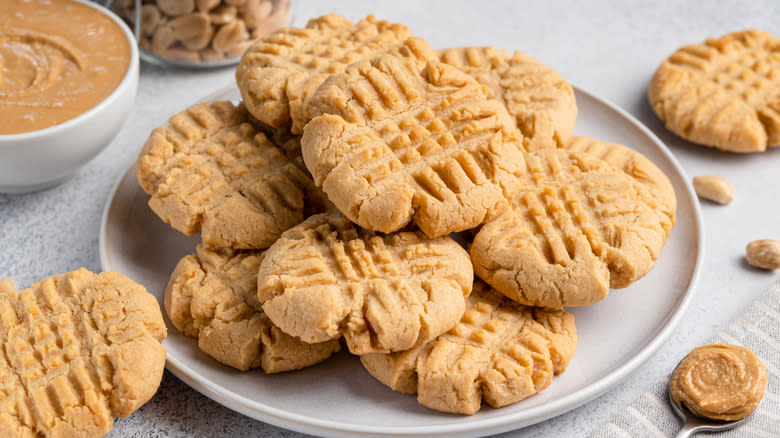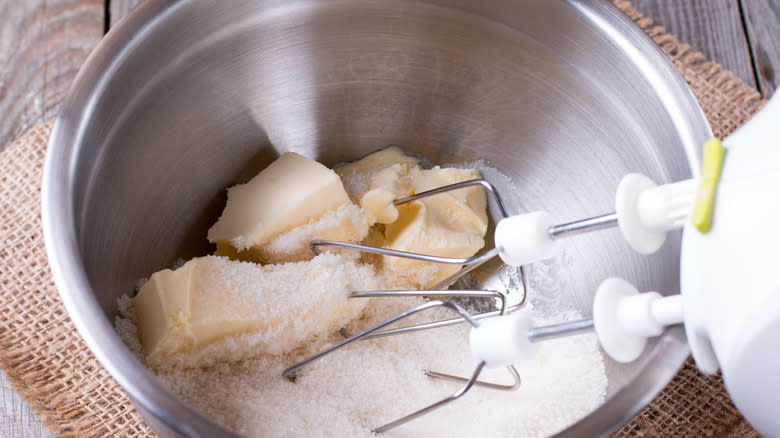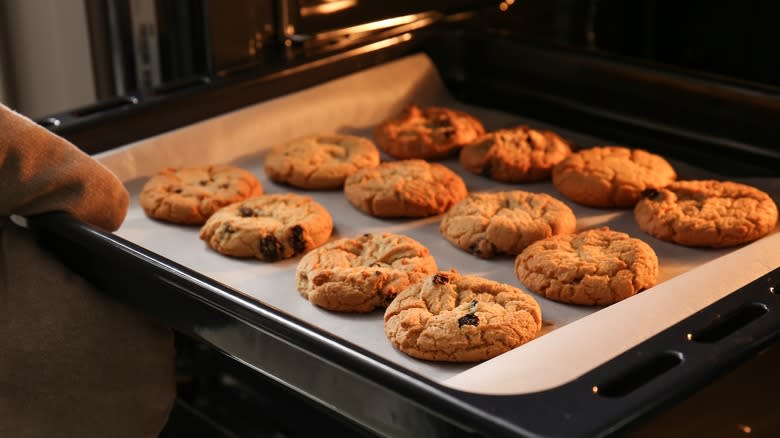Why Your Cookies Are Coming Out Flat (And How To Fix Them)

Baking cookies is a joyful activity, whether you're making a big batch for a party or holiday season swap, or simply for yourself as a treat. For many home bakers, the process of creating these sweet treats is as much a part of the pleasure as eating them. But there is perhaps no worse feeling than when you go to pull your hard earned cookies from the oven with the anticipation of a first bite, and find that they've fallen flat — or failed to rise at all.
There are many possible reasons for why your cookies may not rise to your expectations, and rooting out the issue so you can prevent it in the future will ensure better baking days. There are a few main factors to evaluate, including ingredients, tools, and temperature. By having an understanding of what those elements contribute to your cookie's chemistry, you can head off any cookie conundrums before it's too late. It's empowering to know that some of these are super simple missteps that can be easily corrected, one of the most important is making sure your butter isn't too warm.
Read more: 8 Baking Sheet Mistakes You Want To Avoid
A Few Possible Ingredient Issues

While "softened" butter is easier to cream with sugar, butter that's too soft and warm won't hold the air that contributes to a rise in your dough. Your best bet is to leave it on the counter a half hour to hour before baking -- you should be able to smoosh it by hand or leave a mark when you press a finger or the back of a spoon into it -- but you don't want it to be oily or greasy on the surface. If it feels like you've passed the point of no return, simply stir a few ice cubes in with your butter for about a minute, and then remove the ice (any water from the ice will be negligible).
It's also possible that your cookies might need a bit more flour, which helps create a gluten network that will trap air bubbles created by your leavener. Once you've got ingredients sorted out, be kind to your dough. If you mix it too aggressively you may work in too many air bubbles, and those don't survive the baking process. When mixing, once your dough is free of the streaky flour, hit the kill switch. Additionally, once your dough is prepared, give it a break. Make balls or discs and then pop them in the fridge for thirty minutes to a couple hours. This prevents the butter in your dough from being too soft when it enters the oven, which will make the cookies spread faster and turn out flatter.
Tracking Your Temperature And Tools

Although you can't see or touch it, heat is a major ingredient in how your cookies do or do not rise. If your baking sheet is scorching hot, particularly if you're making several batches without a break in between, it means the butter in your dough probably melted super fast when your cookies hit the surface, causing them to spread and turn out flat. There's a simple fix for this — just run some cool water over them after you've given them a few minutes to cool down, or even pop them in the freezer if you have the space — then dry them off and prepare for the next round.
For the same reason (meaning your butter melts too quickly) if your oven is too hot, your cookies won't have a chance to develop before they start to spread. It's always a good idea to start out adhering to your recipe's instructions for time and temperature, but if you're seeing flat results repeatedly, it might be a good time to try dropping the temperature just a bit. It's also not uncommon for an oven to be off by a few degrees, so periodically checking your oven's temperature is essential, and investing in an oven thermometer will give you a clearer idea of what your cookies are working with. Having a handle on what may cause flat cookies can help you prevent being disappointed later when you've been dreaming of perfectly fluffy chocolate chip cookies.
Read the original article on Daily Meal

